News Letter journalists talk honestly about the challenges of producing the paper during the pandemic
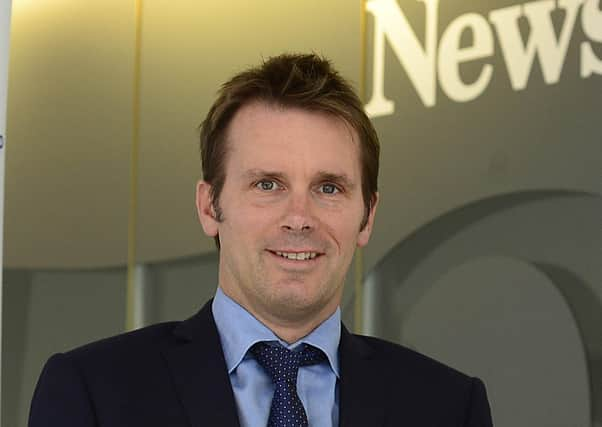

ALISTAIR BUSHE
News Letter editor
“Editing the News Letter during this pandemic has been the biggest challenge of my journalistic career, for myriad reasons.
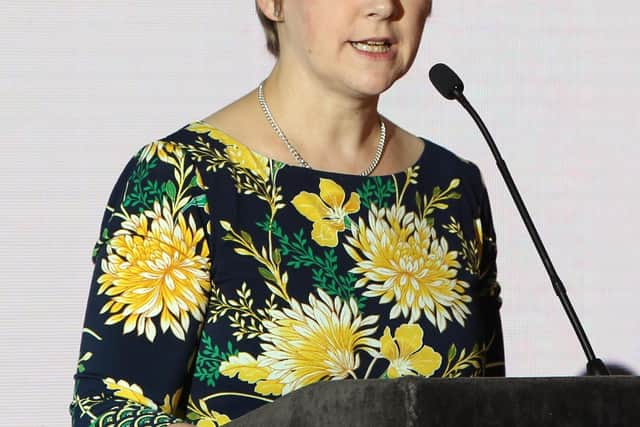

“Adjusting to home-working (while also helping with the home-schooling of two primary school age boys) was difficult, but at least in what was a warm and sunny spring there were advantages.
Advertisement
Hide AdAdvertisement
Hide Ad“In work, the widespread use of video calls for news conferences helped maintain precious face-to-face contact with colleagues; we have become accustomed to publishing from our studies, bedrooms, and living rooms, while no-one can pretend to miss the draining morning or evening commute.
“But it’s almost a year on and I continue to find the constant Covid news agenda mentally draining. Journalists love covering major stories, it’s in our blood, but this has felt different as time has gone on - there has been no escape from it.
“For many people the latest lockdown, and the dreaded return to school closures, represents the lowest point yet of the pandemic. The vaccine was meant to bring hope, but instead there is no end in sight. Let’s hope spring 2021 will bring the respite we all need.”
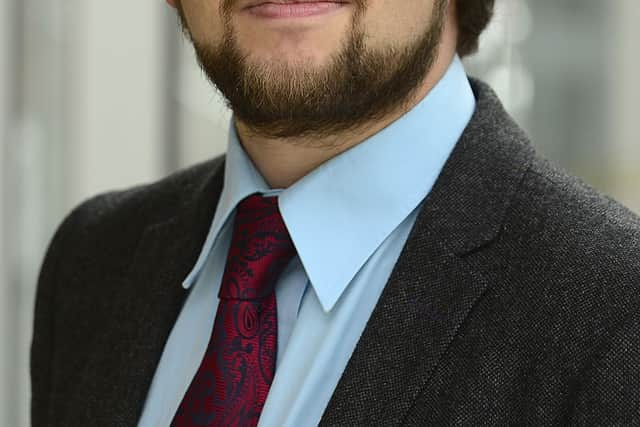

BEN LOWRY
Deputy editor
“Some years ago the News Letter got technology that let people work from home, yet we rarely did until lockdown.
Advertisement
Hide AdAdvertisement
Hide Ad“Now we do, on software that simulates the paper on screen. We can write on to a page from anywhere on earth that has a web link.
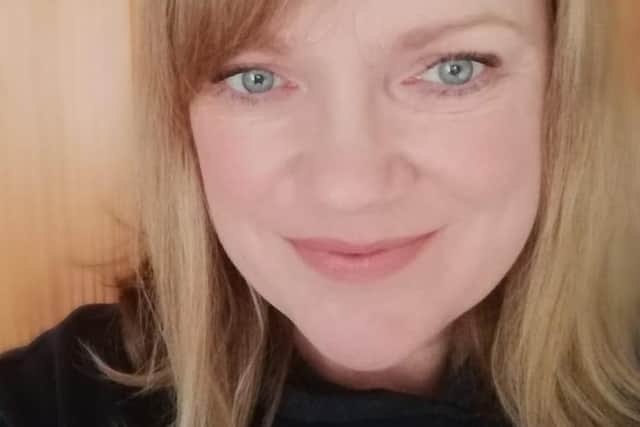

“As a teen, I would have thought that the relaxed setting of home working meant you escaped the drudgery of an office. And it is nice to be able to sleep late rather than commute.
“But it is isolating. There is much to be said for having to get up, groom yourself and dash to be alongside other people.
“Before lockdown I moved from a flat with no outside space to a house with garden. I work in a room that looks out at it, and witnessed the fine spring. But the thought of the families who were confined to my former block of flats alerted me to the inequality of the lockdown experience, and of my good fortune.
Advertisement
Hide AdAdvertisement
Hide Ad“Aside from concern for elderly relatives, my lockdown was comfortable (too much so - I ate well and have never been so unfit and heavy). But I dreamt vividly, so on some level it troubled me.”
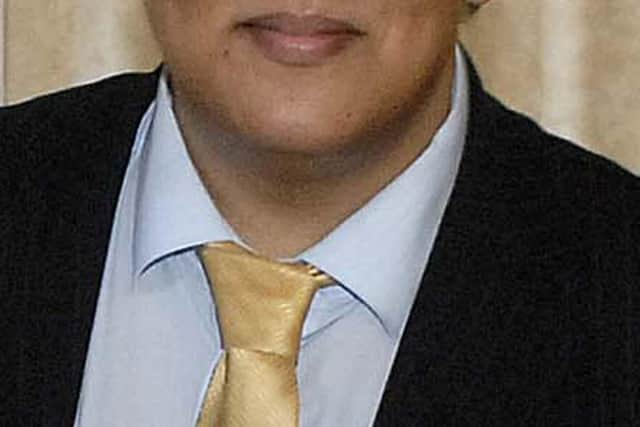

Sam McBride
Political editor
“As my wife headed out to work in a hospital, my brother kept doing his job in a bakery and I saw shop staff continuing to take risks to keep us fed, early in lockdown I felt an immense sense of privilege to be able to work from home.
While some people have struggled with loneliness or mental torment, I have had little beyond mild inconvenience about which to complain.
“Having started writing my book, Burned, a couple of years ago from a desk in our bedroom, energetic young children quickly pushed us to get a small office built at the back of the garden and that has mostly been a haven for writing.
Advertisement
Hide AdAdvertisement
Hide Ad“When lockdown foiled a plan to record the audiobook of Burned in a studio in May, it was in the garden office that I recorded it from beneath a makeshift tent of blankets, sending each chapter to a producer in London.
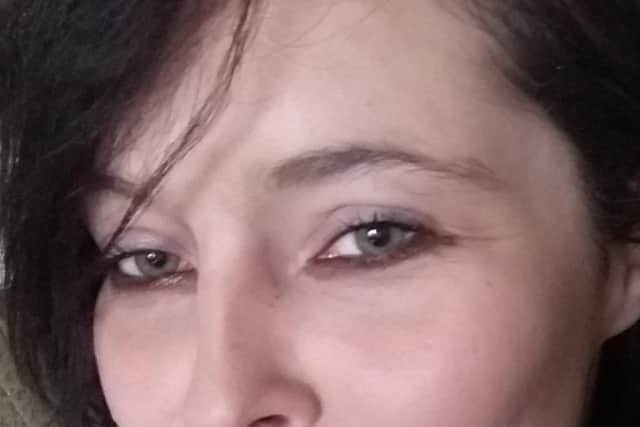

“While most print journalism can be done remotely with phone calls and email, the greatest loss of human interaction has been the chaotic creativity of the newsroom where communication is effortless and ideas are refined.
“We also have lost something which disadvantages those early in their careers - the unspoken learning from observing more senior colleagues.
But overwhelmingly it has been a blessing to be able to work remotely when so many of our readers have not had that choice.”
RUTH RODGERS
Farming Life editor
Advertisement
Hide AdAdvertisement
Hide Ad“I have always considered myself to be quite a resilient person, but I have to admit that 2020 - and particularly the latter months of the year - have been wearisome. And I do worry that when finally I emerge at the end of this pandemic I might have become, to coin a country phrase, ‘a wee bit odd’.
“When we all moved to home working in March, I suppose the ‘novelty’ of the situation at the time and the warm and sunny spring and summer made things seem less of an ordeal and more bearable as we all got used to our new ‘normal’.
“With the colder and darker nights, months of lack of any real meaningful social connection, lockdown one, two and now three, it feels that initial novelty factor is well and truly over and I wonder will life ever be normal again.
“I do feel fortunate that my day-to-day work revolves around an industry which, by and large, has been the least affected by the current pandemic.
Advertisement
Hide AdAdvertisement
Hide Ad“In fact, our farmers have even gained new found respect in some quarters.
“While they too are missing out on social interaction and family life, just like everyone in society, the work on the farm is continuing regardless of a global pandemic and decisions still have to be made on a daily basis around animal welfare, breeding decisions, when to sell or buy livestock and when to reap and sow.
“It has been a great source of regret that a number of the things Farming Life would normally done throughout the year have had to be put on hold - including our presence at local shows, Balmoral and our annual awards ceremony - but I am extremely proud that we have still been able to produce Farming Life as normal, while all working remotely, to help as much as possible to provide a sense of normality around the kitchen table each Saturday morning.
“It has also been a great pleasure to report on the many things that the rural community have been doing to help friends and neighbours during these extraordinary times.”
JONATHAN MCCAMBRIDGE
News editor
“There was little to distinguish many of the days of 2020.
Advertisement
Hide AdAdvertisement
Hide Ad“Endless hours of labour and home schooling bled into each other. Often it felt like I never strayed far from the kitchen table.
“But there is one memory which stands out. Again I was failing to balance the tasks of running the newsdesk of a daily paper with educating my son.
“My boy, an only child, had been cruelly ripped away from contact with his friends, grandparents and cousins. He was desperate for attention.
“But as I found myself falling further and further behind at work, I sent him into the next room to play. I promised that I would look in.
Soon I noticed it had gone quiet. I went to investigate.
Advertisement
Hide AdAdvertisement
Hide Ad“My son was playing a board game with dice and counters. He was taking one turn with the die, and then moving around to the other side of the board to take the other, as if there were two players.
“I went to play with him, but not before I had a cry in the kitchen.
“I also told myself off. Nobody I know has got sick, my wife and I have been able to work throughout.
“I’m one of the lucky ones. If it is this hard for me, what must it be like for those who are truly suffering?”
JOANNE SAVAGE
Journalist
Advertisement
Hide AdAdvertisement
Hide Ad“As a journalist I love connecting with others, hearing their stories, meeting new people and thrive on the banter and camaraderie of our shared office in Belfast’s Arthur House where we can brainstorm together or fire ideas off and chat about them - having people around you can really help shape and inspire and drive the stories you produce and suddenly all of that was impossible.
“Over the months since March, working remotely, often in my pyjamas with my top half camera-ready for Google hangouts or staff updates, it has been lonely and challenging to stay motivated.
“Virtual platforms have helped keep us connected, but it is just not the same and I really, truly lament our office space and the people who make it what it is - a dynamic environment where so-called great minds can come together and we natter over far too many cups of coffee between stories.
“I think many of us have struggled with the isolation of lockdown and we know that loneliness has seriously negative outcomes for mental health - all the experts say so.
Advertisement
Hide AdAdvertisement
Hide Ad“The one positive perhaps is that without the background office noise your entire focus is on the story you are working on or the interviewee you have lined up for that day.
“You have more time for research and more time, perhaps, to fine-tune a story than you might do amid the hubbub of the office.
“But for me office culture is a great thing, I regret it’s suspension and I sincerely look forward to returning to a newsroom - a place that feels like home after 11 years in the industry.”
LAURA MCMULLAN
Agri-food journalist
“Shutting off the laptop at the end of a long day, I glanced outside at the early evening sun and knew that yet another five mile run was beckoning.
Advertisement
Hide AdAdvertisement
Hide Ad“It was June, during the height of lockdown, and permanent, five-day-a-week working from home had been going on for some time now, which meant for me, 12 hours a day in my house alone, the only contact with the rest of the world being over email, my phone, or in the form of our daily morning conference calls.
“I write about rural issues, so for the News Letter and Farming Life, it was as busy as ever; we were constantly finding new angles and stories and probing how current affairs were affecting the lives of our agricultural communities.
“But none of those could be followed up face-to-face, which meant that human contact was reduced more than ever.
“Seeing family and friends was restricted, gyms were closed, and I just remember that particular, sunny evening so well, because even though there was such beauty beckoning outside my door, it didn’t quite reach my soul, and I sat on my stairs and cried with the sheer frustration, isolation, and complete lack of motivation.
Advertisement
Hide AdAdvertisement
Hide Ad“You don’t become a journalist to sit at a desk all day, all year. You become a journalist because people are what inspire you and make you thrive.
But, the situation was what it was, and somehow, we all got through it. I feel proud of that fact some of the finest journalistic work produced in this country was done so by those faces I saw on my computer screen every morning, logging in from their home studies, their kitchen tables, their kids’ bedrooms. Professionals dedicated to bringing the news to the people of Northern Ireland no matter what the circumstances.
“As I sit here now, we’re all faced with another lockdown over a month that’s for some, the most challenging of the year. But I know that, being led by the example of the people I work with, we’ll all get through it once again.”
HELEN MCGURK
Features editor
“Pre-Covid, I made a point every evening of watching the local news, followed by the Channel 4 news; around the middle of April I had to take a break from this ritual.
Advertisement
Hide AdAdvertisement
Hide Ad“After a day spent writing about coronavirus, reading statistics, being super-saturated with terrible news all day, I simply had had enough.
“Instead, I watched inane, inoffensive TV shows with my eight-year-old son. His shoulders would shake with laughter and for 30 minutes I could block the horror show of Covid from my mind.
“The worst aspect of lockdown for me was home-schooling.
‘Teaching’ long-division and the intricacies of soil erosion during my lunch hour, and other snatched moments, to two reluctant scholars, was as much ‘fun’ as it sounds.
“There were lighter moments, of course. The daily video calls, which were an opportunity to watch previously clean-shaven colleagues grow Gandalf-esque beards, and our weekly online quizzes, which were an excuse for cathartic mirth.
Advertisement
Hide AdAdvertisement
Hide Ad“I was uplifted, too, by the many stories of people reaching out to help others during this bleakest of times.
“But some of the heartbreaking stories, and the people behind them, lingered long in my consciousness; the plight of carers, of single parents, of people waiting on life-saving treatments.
“As journalists we are meant to be detached, but it is impossible to remain impervious to such human hardship.
“And so, as we continue with another day not at the office, we will try our best to listen and to report your stories with continued professionalism and empathy, because behind the words we write, we feel just as frightened, frustrated and vulnerable as our readers. In that regard, we are all on the same page.”
PATRICK VAN DORT
Deputy sports editor
Advertisement
Hide AdAdvertisement
Hide Ad“On a professional front, the main impact of working within the coronavirus pandemic across 2020 was, of course, the absence for so long of live sport.
“The adjustment to working from home rather than an office environment proved relatively smooth for the sports team due to modern technology.
“However, filling the pages of daily national and weekly regional newspapers called for a fresh and creative approach.
“The Irish League response to lockdown and logistical problems raised such as how to conclude domestic football provided a rolling story over a number of months.
Advertisement
Hide AdAdvertisement
Hide Ad“But, in general, the focus turned to a more feature-led style of journalism that helped to showcase the writing ability of our sports team.
“Without the normal volume of breaking or traditional news to cover, we could offer readers a selection of in-depth features.
“Nostalgia and community-style pieces appeared to especially connect and one major positive from the lockdown period was the chance to spend time telling longform stories of a more personal nature.
“The opportunity to share with the greater public some of the inspirational work within the world of Northern Ireland sport in response to lockdown was certainly a privilege.”
Comment Guidelines
National World encourages reader discussion on our stories. User feedback, insights and back-and-forth exchanges add a rich layer of context to reporting. Please review our Community Guidelines before commenting.